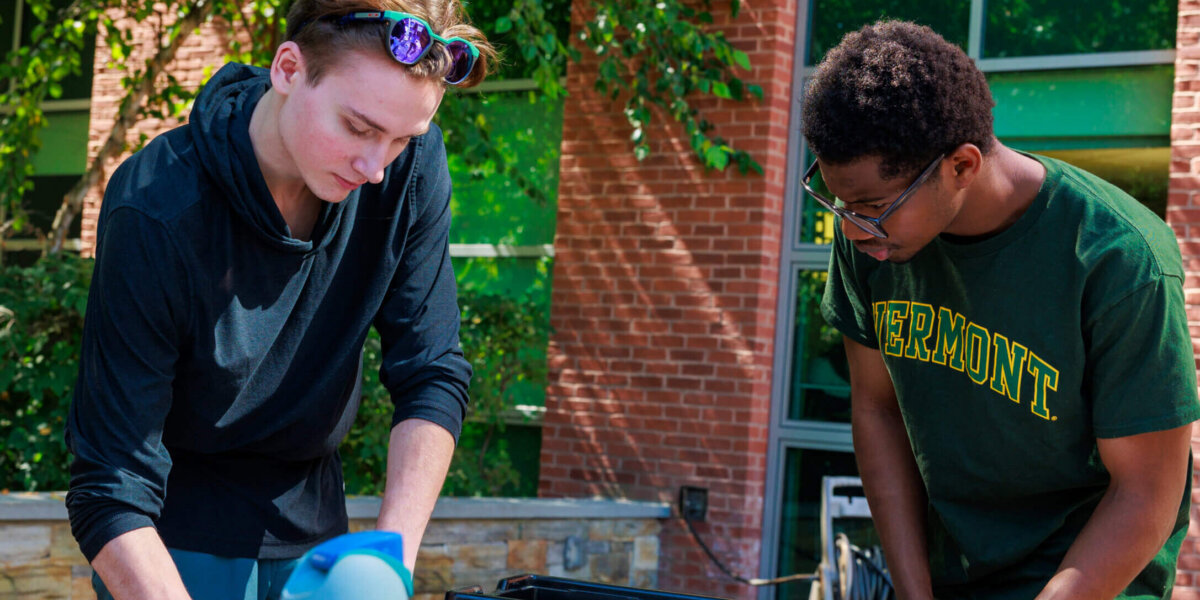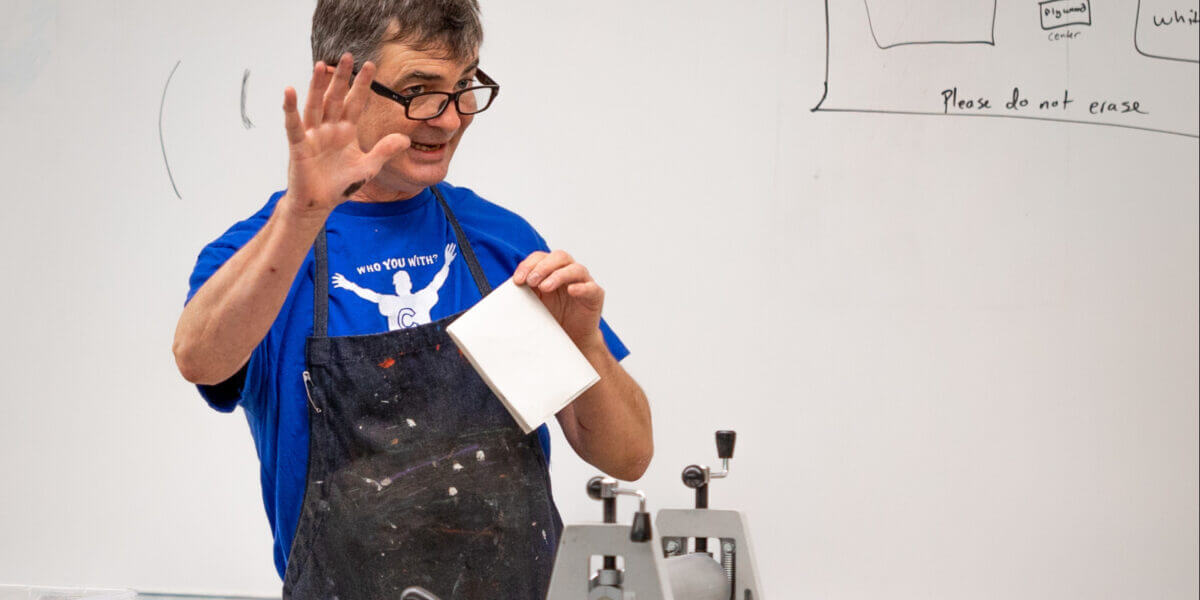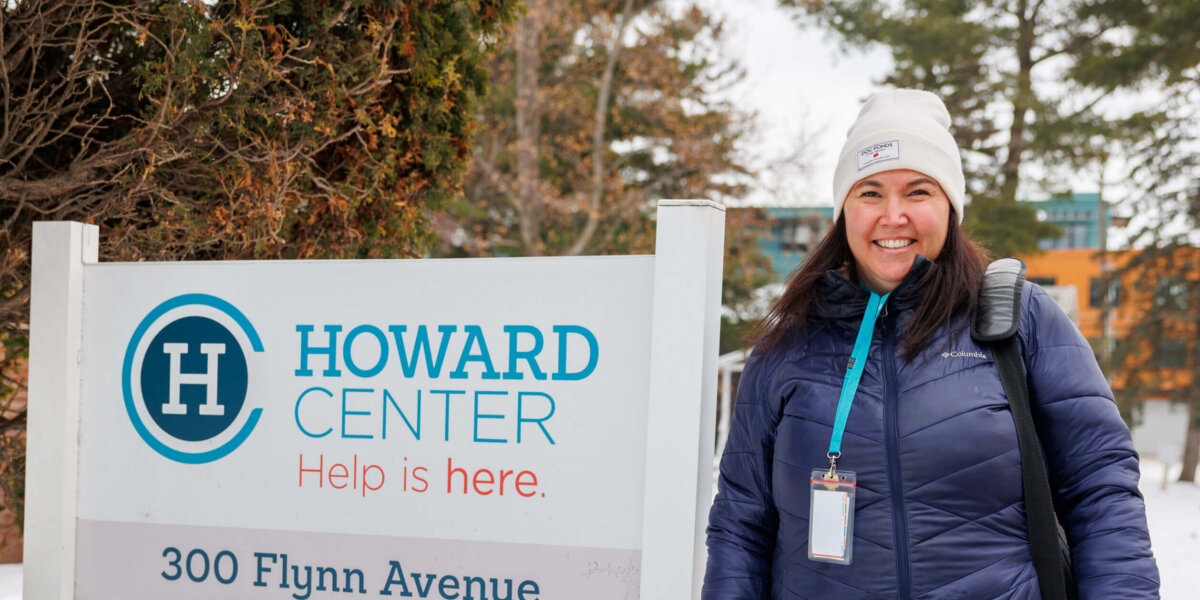When Tina Heywood was a young mom, she had just graduated from college and was working a dead-end job. One day at the gas station, she ran into the husband of a former babysitter, a man who worked as assistant superintendent at the local Correctional facility. He asked if she needed a job. She was unsure, but the job paid well and had good benefits, and she wanted a better future for her family. So she took a leap, thinking she would give it a year. Fast forward close to 30 years, and Tina has served in more than half a dozen roles within Corrections, including as assistant superintendent of programs at Northeast Correctional Complex.
Today, she’s only a handful of years out from retirement, but says she wants to continue working, and she wants to do something with meaning and purpose after she leaves Corrections. So when she found out that she could take free CCV courses as a Corrections staff member, she was intrigued—but she thought there must be a catch. She soon learned that “it is the real deal. There is no hidden cost there…they are offering you this and there’s truth in what they’re offering.”
Last fall, CCV and the Vermont Department of Corrections (VDOC) launched the Corrections Post-Secondary Education Initiative, which provides free CCV courses to VDOC staff and Vermonters who are incarcerated. The goals of the program are twofold: one, to reduce Vermont’s high recidivism rate—after all, most incarcerated Vermonters will eventually be released—and two, to support workforce development. The program will eventually be available at all six of Vermont’s Correctional facilities, including the state’s women’s prison. And this spring, CCV and VDOC announced that eligibility would expand to include staff family members.
Bryan O’Connor is the director of the Corrections education program. “We are thrilled to have this opportunity to partner with the Department of Corrections,” he said. “It’s been a pleasure to see so many Corrections employees advance their education with CCV over the past year. We very much look forward to welcoming their families to the College this summer, as we expand the program to include their spouses and children.”
For Heywood, a lifelong learner who recognized that she stood to benefit from the opportunity, there was still apprehension. “There was a lot of reservation for me. I’m almost 50. I have an associate [degree] in social science; I was a good student but I had to work hard. I wasn’t gifted in that sense, and I wasn’t really sure that I wanted to put that pressure on myself.” But she was curious about what she might learn, and thought to herself, “I’m not gonna know unless I take the chance.”
She started off with two classes last summer, and was quickly hooked. “I’ve learned so much about myself in these two classes that this is so worthwhile,” she thought. She’s also gained skills that she’s applying in her professional life. “With Conflict Resolution, I use what I learned in that class like every single day, and it makes a difference.” Too, she says a college education isn’t just about the degree. “It’s about the meaning and purpose in your own individual life, and you’re making sense sometimes of life experiences.”
Heywood has continued to take two classes each semester since last summer, and says that though she’s changed her mind a few times about the program she wants to pursue, her advisor has been endlessly supportive. “[She] constantly gave me the encouragement to keep moving forward, like ‘you got this, we’re gonna help you get there.’”
Tina was also slightly apprehensive about taking classes online, but found that it had unexpected benefits. “I realized…that I was sharing information with people that I don’t think I would have shared with them face to face. I felt safe. I realized how rewarding that actually was to be able to share experiences and almost not feel that hesitation. So it really was enlightening in that aspect.”
As a career Corrections professional, Heywood has a unique perspective on the role of Corrections in Vermont’s criminal justice system. Her views have evolved over her decades of service, and she says that offering educational opportunities to incarcerated Vermonters is a step in the right direction. “I think tying in that education gives them worth, gives them purpose, gives them hope, and when we talk about restorative justice, to me that’s a part of restorative justice.”
The reality, she says, is that most of the incarcerated population will eventually be released. “I want resources thrown at [them]. I want them to have an opportunity for the best start possible. AND, they have to do the work…the resources are here, it’s up to you to partake in these, to make yourself the best version of yourself and to prove that you…deserve a second chance. And it starts now. Here’s your opportunity.”
Learn more about CCV’s Corrections Post-Secondary Education Initiative at ccvedustg.wpenginepowered.com/corrections.






